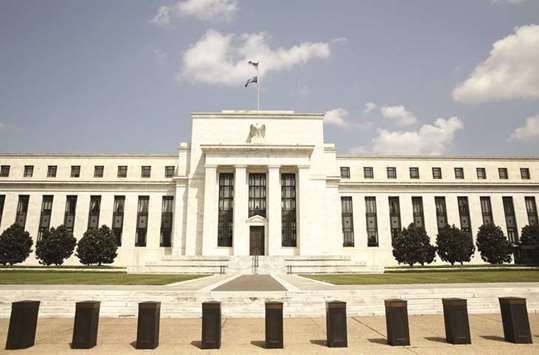Bond traders are tipping off the Federal Reserve on their inflation outlook before the central bank’s meeting this week.
The auction last week of 10-year Treasury Inflation-Protected Securities, known as TIPS, drew the weakest demand in nine years. The sale, which some deemed “terrible,” trimmed the market-implied expected inflation rate by about four basis points, the most for a single day since mid-June. The market is basically trolling Fed Chair Janet Yellen, who’s said it’s “premature” to conclude that the underlying trend of prices is falling short of the bank’s 2% goal.
After a week that saw the Bank of Japan and the European Central Bank keep their policies largely unchanged, traders are watching for clues that the Fed will ease up on its tightening path after officials meet on July 25-26. The largest impediment for staying on track for three rate hikes in 2017 is the core consumer price index, whose growth rate has dropped to the lowest level since 2015.
“No one is really expecting inflation to do much, and that leaves the Fed in a bind - what do you do when there’s no evidence of any kind for your assertion that inflation is robust?” said Aaron Kohli, a fixed-income strategist at BMO Capital Markets. “It’s hard to believe that consistent misses to the downside in core CPI are going to magically lead to better inflation prospects.”
The 10-year Treasury yield fell about nine basis points last week, breaking through both the 50- and 200-day moving averages in the biggest drop since April. It’s brushing up against the 2.21% level that marks the 61.8% retracement of the rebound from its 2017 low of 2.10% to 2.395% on July 7.
TIPS yields, meanwhile, remain closer to the middle of their 2017 ranges and to comparable nominal yields. Their breakeven rate, which represents expected average inflation over the next 10 years, narrowed to 1.76 percentage points last week, compared with the 2017 high of 2.09 percentage points set in January.
It won’t come in time for the FOMC’s meeting, but on July 28, the quarter-over-quarter core personal consumption price index will give another data point on inflation. Bloomberg survey calls for 0.7% growth in 2Q, which would be lowest reading since 2009.
A less-watched inflation measure also will be released July 28: the University of Michigan’s survey of inflation expectations over the next year and the next 5-10 years.
Other data include Markit PMIs and existing home sales on July 24, new home sales on July 26, durable and capital goods orders on July 27 and personal consumption and employment cost on July 28.
As for the Fed meeting itself, which has no press conference, the market is assigning a near-zero chance that policy makers will raise rates. Traders are watching for any strong signal of when balance-sheet reduction will begin, Kohli said; he expects specifics to come at the Fed’s September meeting.
Some Wall Street strategists are cautioning to brace for a tapering announcement this week; Societe Generale sees “toss-up” between July and September, JPMorgan laid out “some valid arguments” for doing it this month, and Bloomberg Intelligence says the Fed “will likely steal the central bank spotlight this summer” by revealing a start date this week.

The Federal Reserve building is seen in Washington. Bond traders are tipping off the Fed on their inflation outlook before the central bank’s meeting this week.


